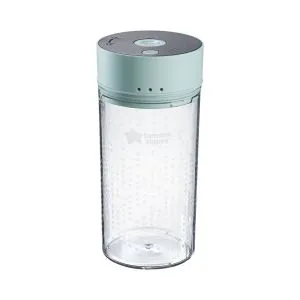Babies can't talk to you to get your attention, so instead, they cry! Most of the time, crying is totally normal and most newborns cry for around two to three hours a day. But crying when feeding can be challenging and frustrating for everyone involved.
Your baby may be crying while being bottle or breastfed for several reasons. Let's run through what these reasons are and how you can help soothe your little one during feeds.
Why your baby might be crying while breastfeeding or bottle feeding
Some babies cry and become unsettled as they feed. The following could be causing their upset:
They have reflux
Crying and becoming fussy when feeding may be a sign of a common condition where babies bring their milk back up after feeds. This is known as reflux and usually starts before your baby is eight weeks old. It should clear up by the age of one year.
They need to be changed
Sometimes it's as simple as popping on a fresh nappy before feed time. Some babies just don't like to feed if they're wearing a dirty nappy.
They're not as hungry as you thought
If your baby cried mid-way through a feed, they might just be full up. Paced feeding may help as it gives them the chance to check in on their appetite.
They're tired
Tiredness can cause a baby to become fussy during a feed, and they may even fall asleep before their feed is done. To stop tiredness from disrupting their feeds, try to feed them before they become too tired and be flexible with your feeding and sleeping routine.
They're going through a growth spurt
Little ones go through many developmental steps during the first weeks and months of their life. These can sometimes make them a little fussy and unsettled during feeds. Similarly, teething and feeling unwell can also disturb their feeds.
They're distracted
Once they start to become aware of what's going on around them, little ones become very curious, and their mind (and eyes) can wander during feeds. To help them focus on their feed, try to give them their milk in a quiet environment that's free from loud noises and distractions.
They need a different teat
If you're bottle feeding, your baby may be crying during a feed because the flow of the teat you're using is too fast or too slow and they're not getting enough milk. Double check that the teat you're using is correct for your baby's age and sucking ability.
You're going from breast to bottle
It's recommended that parents wait until their baby is comfortable with breastfeeding before bringing a bottle into the mix. But once you do introduce a bottle into your feeding routine - either by combination feeding or exclusively bottle feeding - it can take your baby a while to get used to the change.
They're uncomfortable
No one wants to be uncomfortable during mealtimes and if you're breastfeeding, you may find that your baby stops crying when feeding if you adjust your breastfeeding position. Check that your baby's head and neck are aligned, and that their neck, shoulders, and back are supported.
If your baby is bottle-fed, it may help to sit them upright during feeds. This reduces the amount of air they swallow and therefore lowers the chance of uncomfortable trapped wind. If you think your baby may have colic or trapped wind, take time to burp them often during feeds and give an anti-colic bottle a go.
If you're wondering about which feeding position is right for you and your baby, or are concerned about them crying during a feed, you should ask your doctor or health visitor for help and support.









